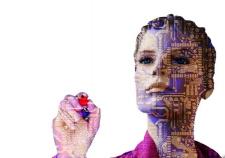Forget Ideology, Liberal Democracy’s Newest Threats Come From Technology and Bioscience
By John Naughton,
The Guardian
| 08. 28. 2016
The BBC Reith Lectures in 1967 were given by Edmund Leach, a Cambridge social anthropologist. “Men have become like gods,” Leach began. “Isn’t it about time that we understood our divinity? Science offers us total mastery over our environment and over our destiny, yet instead of rejoicing we feel deeply afraid.”
That was nearly half a century ago, and yet Leach’s opening lines could easily apply to today. He was speaking before the internet had been built and long before the human genome had been decoded, and so his claim about men becoming “like gods” seems relatively modest compared with the capabilities that molecular biology and computing have subsequently bestowed upon us. Our science-based culture is the most powerful in history, and it is ceaselessly researching, exploring, developing and growing. But in recent times it seems to have also become plagued with existential angst as the implications of human ingenuity begin to be (dimly) glimpsed.
The title that Leach chose for his Reith Lecture – A Runaway World – captures our zeitgeist too. At any rate, we are also increasingly...
Related Articles
By Russ Burlingame, Comicbook | 07.23.2024
Colossal Laboratories and Biosciences, a biotech company that's putting together plans to orchestrate the de-extinction for animals like the dodo and the wooly mammoth, made some waves on Reddit recently when they petitioned the United Federation of Planets -- the...
By Andrea Chang, Los Angeles Times | 06.04.2024
Peter Diamandis, a week away from turning 63, bounds out of a Starbucks on a recent morning with a cup of decaf, his daily medley of 70 supplement capsules in his pocket and, tucked under his left arm, a box...
By Shelly Fan, Singularity Hub | 05.31.2024
We all know the drill for reproduction—sperm meets egg.
For the past decade, scientists have been pushing the boundaries of where the two halves come from. Thanks to induced pluripotent stem cell technology, it’s now possible to scrape skin cells...
By Vardit Ravitsky and Louise King, Scientific American | 06.01.2024
Artificial wombs are moving from the realm of science fiction to possible trials with severely premature human babies. We are excited about the great potential benefits of this technology; however, with fetal rights now a political front in the...




